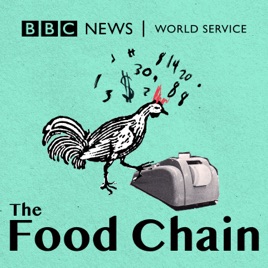
Advertise on podcast: The Food Chain
Rating
4.7 from
Country
This podcast has
300 episodes
Language
Publisher
Explicit
No
Date created
2014/10/23
Average duration
30 min.
Release period
8 days
Description
The Food Chain examines the business, science and cultural significance of food, and what it takes to put food on your plate.
Social media
Check The Food Chain social media presence
Podcast episodes
Check latest episodes from The Food Chain podcast
Is this ultra processed?
2024/02/22
Have you heard of ultra processed food?
In 2010 a group of Brazilian scientists said we should be focusing less on the nutritional content of food, and more on the form of processing it undergoes. They created the Nova system, a way of categorising foods based on how processed they are. It identifies ultra processed foods as generally industrially manufactured, containing ingredients such as emulsifiers, stabilisers and other additives that would not be found in an average home kitchen.
A growing body of scientific research suggests a link between this category of ultra processed foods and ill health, although there’s still some uncertainty around why this could be.
In this programme we look at what ultra processed food is, how you spot it, and how practical it is to avoid it, should you wish to.
Ruth Alexander speaks to listener Jen Sherman in California who is trying to reduce the amount of ultra processed food her family eats. Ruth also hears from one of the public health scientists behind the Nova classification, Jean-Claude Moubarac at the University of Montreal in Canada, and from Pierre Slamich, co-founder of the Open Food Facts app and website, a database of foods that can help you identify products that are ultra processed. Kate Halliwell, Chief Scientific Officer at the Food and Drink Federation in the UK, which represents manufacturers, says evidence of harm from ultra processed foods is not yet strong enough.
If you’d like to contact the programme you can email thefoodchain@bbc.co.uk.
Presented by Ruth Alexander.
Produced by Beatrice Pickup.
Additional reporting by Jane Chambers in Chile.
more
Table talk
2024/02/15
What do you and your family chat about at dinner? We eavesdrop on conversations over food all over the world, hearing about poetry, politics, what is on TV and how Morag’s leg is recovering.
Whether you gossip or have more philosophical debates find out how integral good communication is while we are eating, often marking the only point in the day or week when a family gathers together.
We learn why a matchmaker thinks a dinner date might not be such a good idea after all if you want the conversation to flow. And, psychotherapist Philippa Perry tells us how to keep the peace with the family over Sunday lunch.
Presenter: Ruth Alexander
Producer: Hannah Bewley and Rumella Dasgupta
If you would like to get in touch with the show, please email: thefoodchain@bbc.co.uk
(Image: Family and friends sit around the dinner table. Credit: BBC)
more
Detroit's urban farmers
2024/02/08
The city of Detroit in the United States has a lot of vacant space – as much as a quarter of residential, commercial and industrial sites lie unused today.
In this programme Ruth Alexander meets the people who are growing food in their neighbourhoods, creating urban farms and community gardens where houses once stood. Mark Covington is the founder of Georgia Street Community Collective, and Tyson Gersh is the co-founder of the Michigan Urban Farming Initiative.
Ruth learns why so much land stands empty from the city’s official historian Jamon Jordan. Jamon explains the role of the automobile industry in bringing jobs and people to Detroit in the early 1900s, and the circumstances that led to decades of population decline, job losses and debt for the city government, culminating in bankruptcy in 2013.
Tepfirah Rushdan is the newly appointed, first Director of Urban Agriculture for the city of Detroit. She explains how she hopes to bring urban farmers and politicians together to find a way for food to be grown alongside new developments as investment returns to the city.
If you’d like to contact the programme you can email thefoodchain@bbc.co.uk
Presented by Ruth Alexander.
Produced by Beatrice Pickup.
(Image: the Michigan Urban Farming Initiative a farm in downtown Detroit, surrounded by roads and buildings. Credit: Michelle and Chris Gerard/BBC)
more
Rebuilding Turkey’s food culture
2024/02/01
In February 2023, two earthquakes devastated parts of Turkey. The disaster claimed the lives of nearly 60,000 people in southern Turkey and northern Syria.
In this programme Victoria Craig travels to the city of Antakya, part of Hatay Province, close to the border with Syria. It’s a region long famed for its cuisine, and even has special UNESCO recognition for its gastronomy. Since the earthquake a year ago much of the local population has left the badly damaged area, and food businesses in the historic bazaar are waiting for rebuilding work to begin. Victoria hears from the people of Antakya why food is such an important part of their culture and community.
Produced and presented by Victoria Craig.
If you'd like to contact the programme, you can email thefoodchain@bbc.co.uk.
(Image: tray kebab from the bazaar in Antakya. Credit: Victoria Craig/BBC)
more
Is Chinese food the best in the world?
2024/01/25
Chinese food is popular and successful around the world. But is it afforded the respect it deserves?
In some countries Chinese food has been seen as something tasty, but ultimately cheap and not very healthy, despite it being a cuisine with a focus on health, seasonality and gastronomic skill for centuries.
In this programme Ruth Alexander meets Fuchsia Dunlop, a British food writer who has spent a career studying Chinese cuisine. She argues that the food has long been undervalued in the West, and it’s time for that to change.
Ruth also meets chef Andrew Wong, whose restaurant A.Wong in London holds two Michelin stars, the first Chinese restaurant outside of Asia to receive that accolade. A.Wong operates on the same site as Andrew’s parents’ Chinese restaurant in the 1980s and he talks about how the business, and Chinese food in the UK, has evolved.
And she hears from Rica Leon, CEO of ‘Chifa’, a restaurant in LA that celebrates her family’s Chinese and Peruvian heritage. Rica explains how Chinese flavours and ingredients have influenced Peruvian food.
If you’d like to contact the programme, you can email the foodchain@bbc.co.uk
Presented by Ruth Alexander.
Produced by Beatrice Pickup.
(Image: A table of tofu dishes prepared by Fuchsia Dunlop, including mapo tofu, smoked tofu salad, shredded tofu leather, silken tofu with avocado, an imitation roast duck dish made from layers of tofu, and deep fried tofu served in a soup. Credit: Fuchsia Dunlop/BBC)
more
How to invent an apple
2024/01/18
Have you ever wondered why the apple you bite in to is so crisp and juicy? And why it’s available all year round?
Apples originated in the mountains of Central Asia, and made their way along trade routes to Europe and then on to the rest of the world. They are now one of the most widely consumed fruit worldwide.
An apple seed will produce a completely different fruit to the tree it came from – so new varieties have to be bred and cultivated.
In this week’s episode Ruth Alexander finds out about the science behind finding that perfect crunch, how long it takes to be able to taste an apple you’ve spent years planning and how to grab consumers’ attention with a new breed.
Ruth also visits a wassail near Manchester in England to experience an ancient tradition involving cider, hanging toast on a tree and lots of singing to encourage a good apple harvest for the year ahead.
If you would like to get in touch with the show, please email: thefoodchain@bbc.co.uk
Presenter: Ruth Alexander
Producer: Hannah Bewley
(Image: A bright red apple on a green background. Credit: Getty Images)
more
The preservers
2024/01/11
Humans have preserved food to make it last longer for thousands of years. In this programme Ruth Alexander learns about different methods of food preservation used around the world, including pickling, dehydrating and canning.
Food historian and writer Darra Goldstein in the US explains the history of this art. Yukari Sakamoto is a trained chef and sommelier who leads food tours in Tokyo, she explains why people in Japan take the idea of a well stocked pantry seriously. And Usha Prabakaran in Chennai, India talks about her love of the Indian pickle and its role in Indian cuisine.
There are some important safety considerations if you want food to last longer, particularly if you want to store it at room temperature. There is a risk of botulism if food is not heated to the correct temperature for the correct amount of time, particularly for foods that are low in acid. Ruth hears about the laboratory testing done by Carla Schwan, Director at the National Home Food Preservation Centre based in Georgia, United States which tests recipes that can be used safely for home preserves.
Canning – storing food in glass jars and heating it – has seen a resurgence recently. Some enthusiasts refer to themselves as ‘rebel canners’, which in general refers to people wanting to use recipes other than those that have been lab tested and approved. The ‘Canning Diva’, Diane Devereaux a food preservation educator and blogger in the United States explains what motivates rebel canners, and the recipes she thinks are missing for consumers.
If you’d like to contact the programme, you can email thefoodchain@bbc.co.uk.
Presented by Ruth Alexander.
Produced by Beatrice Pickup.
(Image: a selection of foods preserved in jars of different shapes and sizes. Credit: Getty Images/BBC)
more
Another year away from home
2023/12/28
Ruth Alexander talks to two families displaced by the war in Ukraine, as they reflect on their second year away from home.
They discuss the difficulties of being away from loved ones and the solace home cooking can provide.
Ruth speaks to Natalia Lomonosova, who’d had to flee her home in Kyiv with her teenage daughter and has set up a new life in Berlin, Germany; and she visits Mariya Dmytrenko and her family, who are living with their hosts Brian and Julie Lamb, in Blackburn, England.
If you’d like to contact the programme, please email thefoodchain@bbc.co.uk.
Producer: Beatrice Pickup
(Image: Mariya Dmytrenko and family with their hosts Brian and Julie Lamb. Credit: BBC)
more
Festive food stories
2023/12/21
We take a trip around the world with BBC World Service presenters and listeners, finding out which are their favourite foods when a celebration is in order.
A porridge which is hidden around the house to ward off spirits, sweet and delicious pilau shared with neighbours and an ornate box filled with as many as 50 types of food in Japan – we hear about what’s on the menu at this time of year.
Ruth Alexander has help from her enthusiastic three-year-old son to make a traditional Christmas cake for the first time and BBC World Service business presenter Devina Gupta gets stuck washing up after a delicious Diwali feast with her family in Delhi.
Producers: Hannah Bewley, Beatrice Pickup and Rumella Dasgupta
Image: Ruth and her son making Christmas cake, Credit: BBC
If you would like to get in touch with the show, please email: thefoodchain@bbc.co.uk
more
Feed your brain
2023/12/14
Our brains require 20% of our body’s energy intake, despite making up, on average, only 2% of our body weight.
There are nutrients that are needed for brain health and development, yet many of us don’t think about specifically eating for our brains.
In this programme Ruth Alexander learns about the relationship between our gut and our brain, and the impact food can have on your alertness, mood and memory.
And just why oily fish, and other foods containing omega 3 fatty acids are so good for your brain.
Ruth speaks to Dr Reeta Achari, a neurologist specialising in nutrition in Texas, United States and Dr Uma Naidoo a nutritional psychiatrist and author of ‘Calm Your Mind With Food’, in Massachusetts, United States. They are joined by Michelle Munt in the United Kingdom, whose blog ‘Jumbled Brain’ talks about recovering from a brain injury following a car accident in 2014.
Presented by Ruth Alexander.
Produced by Julia Paul and Beatrice Pickup.
(Image: a selection of foods collected in the shape of a brain. Credit: Getty Images/BBC)
more
How to stop cooking killing
2023/12/07
It’s estimated that more than 2 billion people use polluting stoves - with severe consequences for their health.
The World Health Organisation says 3.2 million people die each year as a result of the household air pollution they cause.
Ruth Alexander finds out why this problem – which also harms the environment – is so difficult to solve.
She speaks to Dr Fatih Birol of the International Energy Agency in Paris; Sophie Odupoy from Koko Networks in Kenya; Naramath Lucas Kariongi from the Rural Communities Support Organisation in Tanzania; and Dr Mike Clifford of Nottingham University’s engineering department in the UK.
If you would like to get in touch with the show, please email: thefoodchain@bbc.co.uk.
Producers: Hannah Bewley and Rumella Dasgupta.
(Picture: a clay stove with a wood fire lit. Credit: BBC)
more
Pesticide exports
2023/11/30
Many countries allow the manufacture and export of pesticides that are banned for use in their own countries.
Recently France and Belgium have introduced laws preventing the export of such agrochemicals if their use is banned in the European Union. The European Commission is currently considering whether to introduce similar laws.
Grace Livingstone reports from Paraguay where some small farmers living near soya plantations say heavy pesticide spraying is affecting their health and livelihoods.
We hear from the United Nations Special Rapporteur for Toxics, Marcos Orellana, who says that global pesticide regulations should be tougher.
And we speak to Emily Rees of CropLife International, which represents the agrochemical industry, who says different climates and soil conditions require different pesticides.
Produced and presented by Grace Livingstone.
(Image: a tractor spraying soybean crops. Credit: Getty Images/BBC)
more
Podcast reviews
Read The Food Chain podcast reviews
freya bubbles
2023/06/23
Love love love
My new favorite podcast!
midwestBlue
2022/09/29
who owns the seeds
Excellent podcast. very informative. the bbc is always enlightening me. never go away. thank you!
😉💙🙃
2022/10/23
What do astronauts eat? October 19th
They are forced to drink their own purified urine, since they can not travel with massive amounts of weight.
Natasha Dachos
2022/09/22
Thoughtful
The stoma episode was so caring and thoughtful. Thank you very much.
lululemon678
2022/02/21
Thanks
Always an informative and well curated podcast. Thank you for doing such a terrific job!
Tobylamon
2022/03/13
Hit or miss
This was one of my favorite food podcasts but recent episodes haven’t hit the mark for me. People who feed their dogs human meals, constipation, and, ...
more
rolltidecole
2021/04/14
Informative and fun
Always informative and constantly engaging. So glad this pod exists
Pantuji
2021/02/12
Corona Virus and School Meals
I was really impressed with the podcast. It was not a topic I would have learned about otherwise. The main point that struck me was how elementary and...
more
Runandlisten
2020/12/02
Always Thoughtful and Interesting
Really like this podcast and it’s ability to teach me something useful and relevant. Live it!
livlouvo
2020/11/13
One of my favorites
This podcast is by far one of my favorites. Diverse in episode topic (but always related to food), quality reporting, and overall top notch content. H...
more
Podcast sponsorship advertising
Start advertising on The Food Chain & sponsor relevant audience podcasts
You may also like these food Podcasts
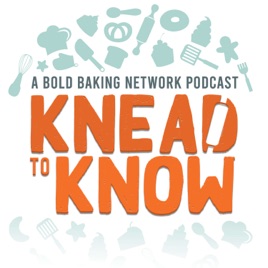
4.7
119
61
Knead to Know
Bold Baking Network
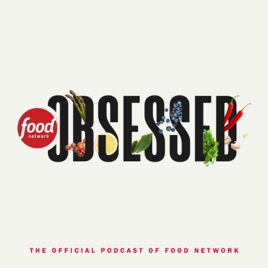
4.8
393
138
Food Network Obsessed
Food Network
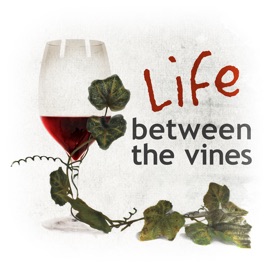
4.8
21
11
Life Between the Vines
Ray Fister
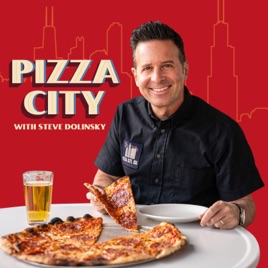
4.7
89
135
Pizza City with Steve Dolinsky
Steve Dolinsky
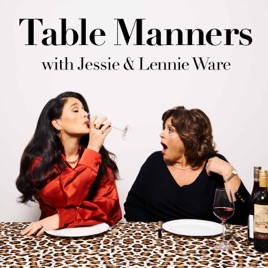
4.8
1164
264
Table Manners with Jessie and Lennie Ware
Jessie Ware
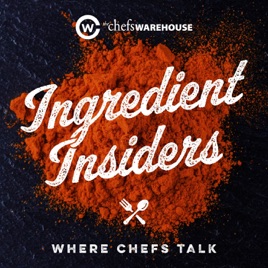
5
79
96
Ingredient Insiders: Where Chefs Talk
The Chefs' Warehouse
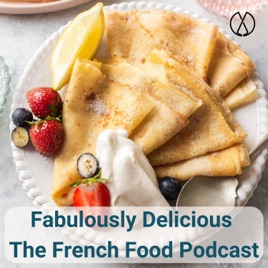
4.3
6
146
Fabulously Delicious: The French Food Podcast
Andrew Prior

5
77
51
Filter Stories - Coffee Documentaries
James Harper
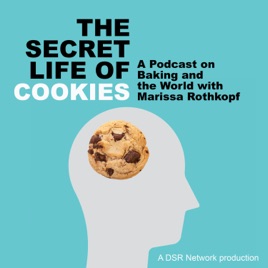
4.8
117
90
The Secret Life Of Cookies
The DSR Network
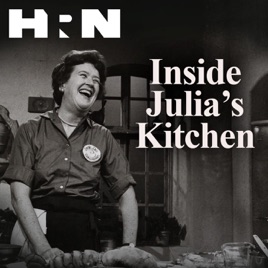
4.4
90
208
Inside Julia's Kitchen
Heritage Radio Network



